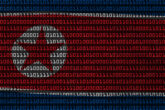September 30, 2019
Confronting Reality: The Bitter Medicine That North Korea Policy Needs Now
My entire career, I’ve watched policy officials make the well-intentioned choice to seek North Korean denuclearization. In the early 2000s, it was a smart and necessary goal. A nuclear North Korea would imperil U.S. allies, spread nuclear weapons beyond the Korean Peninsula, damage the sanctity of the nuclear taboo, and eventually threaten U.S. territory.
Unfortunately, as the saying goes, the enemy gets a vote. North Korea has repeatedly stated it will not entertain “unilateral nuclear abandonment,” and that denuclearization requires “the removal of all sources of nuclear threat, not only from the North and the South but also from all neighboring areas targeting the Korean Peninsula … completely eliminating the U.S. nuclear threat to Korea before it can eliminate our nuclear deterrent.” Short of resorting to military force, there is nothing the United States can do to eliminate North Korea’s nuclear weapons for the foreseeable future.
In a recent report with the Center for a New American Security, I therefore propose redesigning Washington’s North Korea policy to acknowledge that the underlying premise of America’s longstanding approach has been overtaken by events. The assumption that the United States can convince North Korea to denuclearize is not only incorrect; it leads to coercive policies that increase the risk of nuclear conflict. As I recount at length in On the Brink: Trump, Kim, and the Threat of Nuclear War, the goal of denuclearization justified a maximum pressure approach to North Korea in 2017, and maximum pressure played a leading role in causing the nuclear crisis. Rather than dial back a quixotic goal, the Trump administration ratcheted up the means employed and the risks taken to realize it. The nuclear confrontation might have been avoided entirely if the United States had more realistic expectations for what could have been achieved with North Korea.
Read the full article in War on the Rocks.
Explore Van Jackson's September 2019 report about pursuing an arms control approach to North Korea's nuclear arsenal:

Risk Realism
In a new report, Dr. Van Jackson argues that while pursuing North Korean denuclearization is ideal for U.S. national interests, it is no longer realistic for the near-term fut...
Read MoreMore from CNAS
-
What Will North Korean Cybercrime Look Like in 2022?
North Korean hackers will likely continue to employ more phishing campaigns in the future while tailoring their level of obfuscation based on the target’s sophistication....
By Jason Bartlett
-
Duyeon Kim testifies before European Parliament's Committee on Foreign Affairs
Chairman McAllister, Vice Chairs, DKOR Chairman Mandl, and distinguished Members of the Committee on Foreign Affairs and the European Parliament, thank you for the opportunity...
By Dr. Duyeon Kim
-
China’s New Land Borders Law Is a Nightmare for North Korean Refugees
A combination of high-level pressure from foreign governments and steady support for grassroots refugee resettlement organizations and programs is the most practical way to as...
By Jason Bartlett
-
The Two Koreas’ Recent Arms Displays Are Sending Very Different Messages
North Korea has announced that it successfully tested a new, smaller submarine-launched ballistic missile, or SLBM, on Tuesday. State media claimed the missile—launched from t...
By Dr. Duyeon Kim


